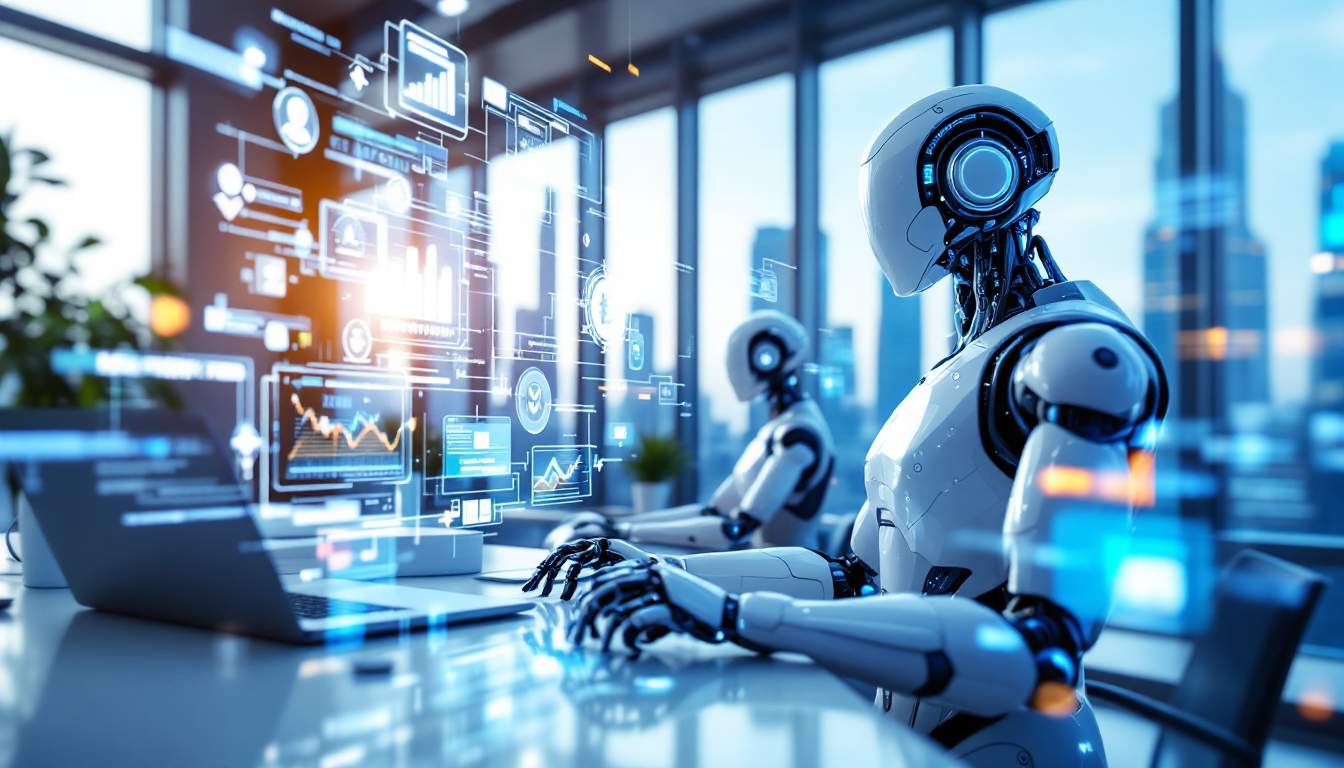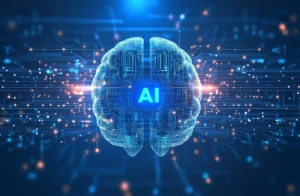The convergence of Artificial Intelligence (AI) and Web3 technologies has the potential to reshape the digital landscape in ways that were once unimaginable. As we approach 2025, industry leaders are predicting that AI agents will play a pivotal role in the evolution of Web3, driving new levels of automation, decentralization, and user-centric experiences. From enhanced blockchain efficiency to intelligent digital assets, AI-powered agents are set to be the catalysts that push Web3 into a new era.
Understanding Web3 and AI Agents
Before delving into the potential impact of AI agents, it’s important to grasp the basics of Web3 and AI agents individually.
- Web3 refers to the next generation of the internet, built on decentralized networks powered by blockchain technology. Unlike Web2, where data is controlled by centralized entities, Web3 allows for greater user autonomy, transparency, and data ownership. Key elements of Web3 include decentralized finance (DeFi), non-fungible tokens (NFTs), and decentralized applications (dApps).
- AI agents, on the other hand, are autonomous systems that use artificial intelligence to perform tasks, make decisions, and interact with environments without human intervention. These agents can range from simple chatbots to complex systems that learn, adapt, and solve problems in real time.
How AI Agents Will Revolutionize Web3
Industry leaders foresee AI agents driving transformation across several key areas of Web3. Here’s a look at how these technologies will work together to reshape the decentralized internet:
1. Decentralized Autonomous Organizations (DAOs)
Web3 is already home to DAOs, which are organizations governed by code rather than centralized leadership. These organizations rely on blockchain-based smart contracts to ensure transparency and fairness. However, the operational complexity of DAOs often requires human oversight and manual intervention.
AI agents will streamline DAO governance by automating decision-making processes and reducing the need for human intermediaries. With machine learning and natural language processing (NLP), AI agents could analyze proposals, vote on issues, and even execute tasks based on pre-defined algorithms, enhancing efficiency and reducing human error. This will lead to more responsive and effective DAOs, creating a truly autonomous organizational structure.
2. Enhancing Blockchain Efficiency
Blockchain technology, the backbone of Web3, is often criticized for its energy consumption and slow transaction speeds. AI agents are poised to optimize blockchain networks by analyzing vast amounts of data in real time, predicting congestion, and suggesting improvements to the network’s architecture.
By using AI for predictive analytics, blockchain platforms could become more efficient, scalable, and sustainable. AI agents could also help in optimizing consensus mechanisms and managing smart contract execution, ensuring smoother, faster, and more cost-effective blockchain transactions.
3. AI-Powered Smart Contracts
Smart contracts are self-executing contracts with the terms of the agreement directly written into code. While they eliminate the need for intermediaries, they can be inflexible and prone to vulnerabilities. AI agents can bring a new level of intelligence to smart contracts by enabling them to learn from past transactions and adapt to changing conditions.
For example, AI could be used to dynamically adjust contract terms based on external data or market trends, making the contracts more flexible and responsive to real-world conditions. This could significantly reduce the risk of contract failure and increase the overall security of decentralized applications.
4. Personalized and Autonomous Digital Identities
In Web3, individuals have control over their digital identities, which can be stored and managed using blockchain technology. However, managing these identities and ensuring security remains a complex task. AI agents could offer personalized identity management systems that automatically update and verify digital identities based on interactions across the decentralized web.
These intelligent agents could monitor user activity, assess risks, and help users maintain secure, up-to-date identities without the need for constant manual intervention. The result would be a more seamless and secure user experience in the Web3 ecosystem.
5. AI-Driven NFTs and Digital Assets
Non-fungible tokens (NFTs) have become one of the most popular aspects of Web3, allowing creators to monetize their digital art, music, and other content. However, NFTs are still largely static and rely on human decision-making for their creation and curation.
AI agents could transform the NFT space by creating dynamic, self-evolving NFTs that can adapt to their environments and interact with users. These AI-powered NFTs could offer more personalized experiences and change based on user preferences or external data, making them far more interactive and valuable.
6. AI Agents as Web3 Personal Assistants
As Web3 becomes more complex, users will need tools to navigate decentralized platforms, manage assets, and interact with DAOs. AI agents could act as personal assistants for Web3 users, helping them manage their portfolios, track blockchain transactions, and even predict market trends.
These AI agents could operate across multiple platforms, seamlessly integrating with decentralized applications and offering recommendations tailored to users’ specific needs. By automating routine tasks, AI agents will allow users to focus on higher-level decision-making and strategic actions in the Web3 space.
Challenges and Considerations
While the potential of AI agents in Web3 is immense, there are several challenges that must be addressed before this vision can become a reality:
- Data Privacy and Security: AI agents will need to handle sensitive user data, which could raise privacy concerns. Ensuring that these agents operate securely and transparently will be crucial to gaining user trust.
- Regulation and Compliance: As AI agents make more autonomous decisions, the need for clear regulations and frameworks will become even more important. Developers will need to ensure that AI agents comply with existing laws and ethical guidelines, particularly in areas like finance and personal data.
- Interoperability: Web3 is still in its early stages, and ensuring that AI agents can operate seamlessly across different platforms and blockchains will require significant development.
The Future of AI and Web3: A Perfect Storm
The combination of AI and Web3 holds the promise of creating a more efficient, personalized, and autonomous internet. By 2025, AI agents could become a fundamental part of Web3 ecosystems, driving innovation across decentralized finance, digital assets, and governance systems.
For businesses, developers, and entrepreneurs, the next few years will be crucial in exploring how AI can enhance Web3 applications. As these technologies mature and evolve, they will unlock new opportunities for innovation, creating a more intelligent, interconnected, and user-centric web.
In conclusion, AI agents are not just a speculative concept—they are on the cusp of revolutionizing the Web3 landscape. With the right investments in technology and infrastructure, AI-powered agents will usher in a new era of decentralized intelligence, automation, and personalized experiences, making Web3 a truly transformative force in the digital world.
This article can be further optimized for SEO with targeted keywords like “AI agents in Web3,” “decentralized finance AI,” “future of Web3,” and “AI-driven smart contracts” for maximum reach and visibility. Would you like me to assist with keyword optimization and further content tweaks?











